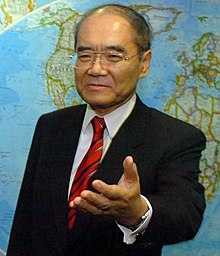| UNESCO Universal Declaration on Cultural Diversity | |
|---|---|
| Created | 2 November 2001 |
| Location | UNeDocs[1] |
| Purpose | Cultural diversity |
The Universal Declaration on Cultural Diversity is a declaration adopted unanimously by the General Conference of the United Nations Educational, Scientific and Cultural Organization (UNESCO) at its thirty-first session on 2 November 2001.[2] It calls on nations and institutions to work together for the preservation of culture in all its forms, and for policies that help to share ideas across cultures and inspire new forms of creativity. It interprets "culture" in a broad sense and connects the preservation of culture to central issues of human rights. It defines a role for UNESCO as a space in which different institutions can develop ideas on cultural diversity, which has been a theme of many of UNESCO's activities in the years since. The primary audience of the declaration includes UNESCO's member states as well as international and non-governmental bodies, but other organisations and individuals have also been inspired by it.

- ^ "UNESCO Universal Declaration on Cultural Diversity". UNESCO Digital Library. 2002. Retrieved 4 May 2022.
- ^ Cite error: The named reference
:2was invoked but never defined (see the help page).